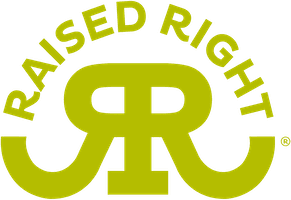
Selecting the right dog food for your perfect pooch isn’t always easy. You might find conflicting information that leaves you even more confused about what constitutes good dog food. One topic where there shouldn’t be much room for debate, though, is limited ingredient dog food. So, why choose limited ingredient dog food, and what are the potential benefits to your dog?
What does ‘limited ingredient dog food’ mean?
The term ‘limited ingredient dog food’ doesn’t refer to a specific diet, but gives an idea of the composition. In order for a recipe to be considered a limited ingredient diet, it should only contain one source of animal protein. This means that if the recipe contains both turkey and beef, then it wouldn’t be a limited ingredient dog food. The recipe should also only contain one fruit and one vegetable in the list of ingredients. This might sound boring, but fewer ingredients doesn’t mean that the dog food is less tasty, especially if it’s a whole food recipe that contains plenty of human-grade meats.
What ingredients does your dog need in their dog food?

High quality limited ingredient dog food recipes meet AAFCO’s standards for a complete & balanced diet with the fewest ingredients possible instead of using unnecessary high carb fillers
Broadly speaking, your dog requires the same food groups that we do – protein, fat, fiber, vitamins, and minerals are all needed within dog food. What’s just as important, though, is the balance of these nutrients. Too much, or too little of any particular nutrient could lead to problems like obesity, malnutrition, toxicities, and deficiencies so not all limited ingredient diets are created equal. High quality limited ingredient dog food recipes meet AAFCO’s standards for a complete & balanced diet with the fewest ingredients possible instead of using unnecessary high carb fillers.
Why choose a limited ingredient dog food?
There are a few benefits to feeding your dog limited ingredient dog food so let’s find out why it could be a good fit for your canine companion:
Fewer ingredients mean fewer allergens

A limited ingredient diet will give you more control and awareness of what you are feeding your dog so that you can track any potential reactions to any specific ingredient.
If your dog suffers from allergies, whether their skin or their stomach is affected, a limited ingredient diet is a good idea. Common allergens are proteins, so using dog food with just one protein source will help you prevent a flare-up. It will also give you more control and awareness of what you are feeding your dog so that you can track any potential reactions and avoid ingredients that repeatedly cause a problem for your dog. Find out more about what to feed your dog with allergies.
Fewer ingredients mean less chance of GI upset
If your dog has a sensitive stomach and easily develops vomiting or diarrhea, a limited ingredient diet could help. If you know some of their triggers, you’ll be able to spot them easily on the ingredient list, and if you’re not sure, it’s less risky to feed a dog food with fewer ingredients that’s easy on the stomach. You can find out more about bland diets by clicking here.
Less is more
You might think that a long ingredient list with plenty of extras makes for better dog food with more flavor. After all, fine dining in humans tends to mean lots of extra garnishes and seasonings and many ingredients in just a small plate of food! In dogs, however, lots of ingredients often mean additives, flavorings, preservatives, and high carb fillers. Therefore, to avoid over-processed dog food, choosing a fresh, high-quality, limited-ingredient diet is a good idea. Here’s a blog post about harmful ingredients in dog food to avoid feeding your pup.
Every ingredient counts

Each ingredient has a part to play in your dog’s nutrition, and with a high quality limited ingredient diet, you will know that what you’re feeding them is exactly what they need.
Feeding a high quality limited ingredient dog food gives you the reassurance that each component is there for a reason, not just added for the sake of it. Each ingredient has a part to play in your dog’s nutrition, and you know that what you’re feeding them is exactly what they need.
Summary
A common misconception about limited ingredient dog food is that it’s only meant for dogs with food sensitivities. This isn’t true because if the recipe meets AAFCO’s standards for a complete & balanced diet, your dog is getting all the nutrients they need so this means that healthy dogs can thrive on a limited ingredient diet too. Whether your dog has allergies or a sensitive stomach, or even if you just want to feed a high quality diet that’s free from unwanted additives and fillers then a limited ingredient diet can be an excellent choice for your dog.
FAQ
What are the benefits of limited ingredient dog food?
Limited ingredient dog foods contain fewer allergens, meaning they can help avoid triggers in dogs with allergies or dietary sensitivities. However, even healthy dogs can benefit from limited ingredient recipes that don’t contain any additives, preservatives, flavorings, or high carb fillers.
Does my dog need limited ingredient food?
Any dog can benefit from a limited ingredient dog food that meets AAFCO’s standards for a complete & balanced diet. If you have a dog with allergies or a sensitive stomach then a limited ingredient diet could be very helpful with those health issues.
Is limited ingredient dog food the same as grain free dog food?
A limited ingredient dog food is not the same as grain free dog food. Although limited ingredient dog foods can be grain-free, some do contain grain as one of their nutritional sources. Similarly, a grain-free diet isn’t necessarily a limited ingredient dog food as it could still contain multiple sources of animal protein.
Is limited ingredient dog food good for allergies?
Limited ingredient dog foods allow you to avoid your dog’s food allergens if you know what they are. Even if you’re unsure which foods your dog reacts to, a limited ingredient diet gives you more control over what you’re feeding your dog to help avoid foods that regularly cause symptoms.



